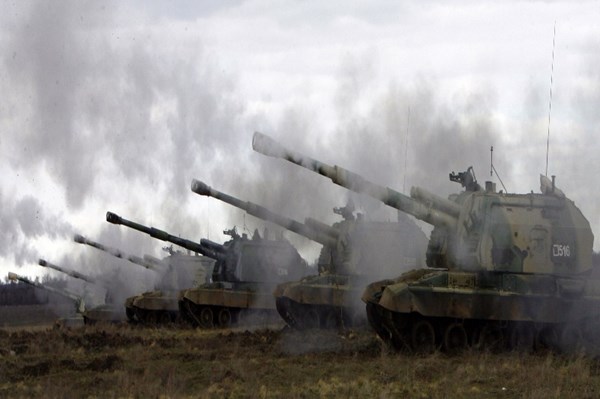German media: Western Intelligence warns of significant territorial losses for Ukraine by year-end
Western intelligence services believe that Ukraine faces the risk of "significant" territorial losses by the end of the year, report the German newspaper Frankfurter Allgemeine Sonntagszeitung and Welt, citing intelligence assessments.
The report highlights a bleak outlook for Ukraine, due to the superiority of Russian forces.
Intelligence evaluations suggest that Kyiv is unlikely to "seize the initiative" in 2024. By the end of the year, Ukraine is expected to suffer "significantly greater territorial losses" compared to the months since January.
Russian forces are reportedly using artillery far more effectively than Ukrainian forces. Moreover, Russia can "more than compensate" for its losses, while Kyiv struggles to recruit enough new soldiers to "offset losses and build reserves". New conscription regulations "will only take effect by the end of summer," as conscripts need to undergo training first.
This forecasted territorial loss for Ukraine is attributed to the current "defensive stance of the Ukrainian armed forces and the associated prolongation of fights." Ukraine aims to "preserve personnel" and is currently "buying time by ceding territory". Kyiv hopes this strategy will provide "time to mobilise and rebuild its military-industrial complex". However, Russian airstrikes on this sector could pose a significant problem.
Roderich Kiesewetter, a representative of the opposition Christian Democratic Union (CDU) and deputy chairman of the parliamentary committee overseeing intelligence services, confirmed that Ukraine faces issues with ammunition and mobilisation.
Kiesewetter also noted that there seems to be a spread of "pessimistic reports about the situation," likely intended to portray the situation as hopeless and to suggest that military support no longer makes sense. This narrative is meant to "subtly but cruelly" pressure Kyiv to "cede territory”.
Kiesewetter commented on the intelligence assessment, stating that Ukraine can still "continue to prevail" but "every delay in support" from Germany and other countries will make this more difficult and costly.
Ralf Stegner, a member of the ruling Social Democratic Party (SPD) and also a member of the oversight committee, stated however that the intelligence assessment was "essentially correct" and "aligned with what I know."
He pointed out that Ukraine’s unsuccessful offensive last year showed that "we can and should prevent Ukraine’s defeat, but we can't guarantee its victory." Those who continue to demand that "weapon A should be delivered faster, and weapon B in greater quantities", are, in his view, chasing illusions. "Continuously increasing the dose when the medicine is not working is unconvincing," Stegner said.
He believes that the narrative of hopeless resistance can only be overcome if Chancellor Olaf Scholz's slogan of aiding Ukraine "as long as necessary" is replaced with an "all-inclusive" approach. For example, Ukraine should be allowed to use Western weapons to attack Russian manufacturing sites, depots, and transit points within Russia itself. He argues that "red lines" need to disappear, and arms production must be accelerated.
